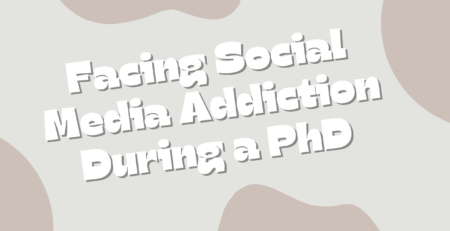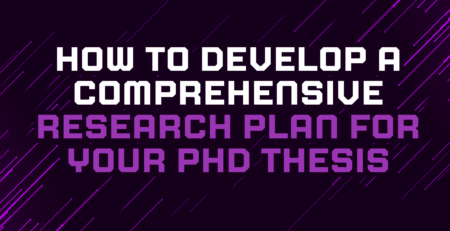Common Mistakes to Avoid in Your PhD Research Proposal
Kenfra Research - Shallo2025-02-11T16:54:51+05:30Writing a PhD research proposal can be an overwhelming task, but it is a critical step in your doctoral journey. A well-crafted proposal not only demonstrates your knowledge and understanding of the subject but also shows your ability to conduct original research. However, many students make common mistakes while preparing Your PhD Research Proposal, which can hurt their chances of approval. In this blog post, we’ll highlight these common mistakes and offer tips on how to avoid them while working on Your PhD Research Proposal.

1. Lack of Clarity in Research Objectives
One of the biggest mistakes PhD candidates make is not clearly defining the objectives of their research. Your research proposal should have a focused and specific aim. If your objectives are vague or too broad, your proposal may fail to convey your research plan effectively.
How to avoid this mistake:
- Break down your research topic into specific questions you aim to answer.
- Ensure your objectives are measurable, realistic, and achievable within the time frame of your PhD program.
- Be concise but clear in outlining your research goals.
2. Failure to Demonstrate Originality
A PhD research proposal must demonstrate that your research will contribute new knowledge to the field. Simply reiterating what is already known does not add value. Supervisors and committees want to see that your research will offer something fresh and innovative.
How to avoid this mistake:
- Conduct a thorough literature review to identify gaps in existing research.
- Highlight how your research will address these gaps and why it is original.
- Clearly define the unique aspects of your approach or methodology.
3. Weak Literature Review
Your literature review serves as the foundation for your research proposal. It helps to establish the context of your study, showing what has already been researched and where your work fits into the broader academic landscape. A weak or underdeveloped literature review may leave your proposal looking unfocused and under-informed.
How to avoid this mistake:
- Ensure your literature review is comprehensive and up-to-date.
- Synthesize existing research, highlighting both strengths and weaknesses in the literature.
- Identify clear gaps in the research that your study will address.
4. Unrealistic Methodology
The methodology section of your research proposal outlines how you plan to conduct your research. If your methodology is too ambitious or impractical, it may cause concerns for the committee. Proposals that lack feasible plans for data collection, analysis, or time management are often rejected.
How to avoid this mistake:
- Choose a methodology that aligns with your research questions and objectives.
- Be realistic about the resources and time you have available.
- Justify your choice of methodology with a clear rationale.
5. Inadequate Budget or Timeline
Failing to provide a detailed and realistic budget or timeline can be detrimental to your proposal. Without these elements, it may seem like you haven’t thought through the logistics of your research. A solid timeline and budget demonstrate your ability to manage your research project efficiently.
How to avoid this mistake:
- Develop a clear, step-by-step timeline for completing your research.
- Estimate a realistic budget based on your project’s needs (e.g., materials, travel, software).
- Ensure that your timeline aligns with the academic year and any deadlines set by your university or funding bodies.
6. Ignoring Ethical Considerations
Ethical considerations are crucial in any research, especially in fields involving human participants or sensitive data. Failing to address ethical concerns can result in your proposal being rejected outright. Ethical issues include informed consent, confidentiality, and ensuring no harm comes to participants.
How to avoid this mistake:
- Familiarize yourself with the ethical guidelines for research in your field.
- Clearly outline how you will address ethical issues in your research, such as obtaining consent or ensuring confidentiality.
- Mention any required ethical approvals, such as Institutional Review Board (IRB) approval if applicable.
7. Overly Complex or Technical Language
While you want your proposal to demonstrate your expertise, using overly technical or complex language can make it difficult for reviewers to understand your ideas. It’s essential to strike the right balance between academic rigor and readability.
How to avoid this mistake:
- Write clearly and concisely, ensuring your ideas are easy to follow.
- Avoid jargon unless necessary, and explain any complex terms you use.
- Consider having a peer or mentor review your proposal for clarity.
8. Lack of a Strong Theoretical Framework
Your theoretical framework provides the foundation for your research, guiding your approach and helping to interpret your findings. Failing to provide a robust framework can leave your research feeling directionless and ungrounded.
How to avoid this mistake:
- Clearly define the theoretical concepts that underpin your research.
- Connect your research questions to existing theories and explain how they influence your approach.
- Ensure that your framework is relevant and up-to-date.
9. Overloading the Proposal with Information
It’s easy to get carried away when writing your research proposal, especially if you have a deep interest in your topic. However, including excessive detail or irrelevant information can make your proposal overwhelming and difficult to read.
How to avoid this mistake:
- Stick to the most essential details that support your research objectives.
- Avoid going off-topic or adding unrelated sections to your proposal.
- Organize your proposal logically, using headings and subheadings to make it easy to navigate.
10. Neglecting to Show the Potential Impact of Your Research
Your proposal should not only demonstrate the academic value of your research but also the broader impact it could have. Whether your research has practical applications, societal relevance, or potential to influence policy, it’s important to highlight these aspects.
How to avoid this mistake:
- In the conclusion or discussion section, emphasize how your research will contribute to the field.
- Show the potential benefits of your work for academia, industry, or society.
- If applicable, mention any collaborations or funding opportunities that could support your research.
Conclusion
Avoiding these common mistakes in Your PhD Research Proposal will increase your chances of securing approval and setting yourself up for success in your academic journey. By being clear, focused, and realistic in Your PhD Research Proposal, you’ll demonstrate your ability to conduct meaningful and original research. Take your time to plan, review, and refine your proposal before submitting it, and remember that this document is just the beginning of your exciting PhD adventure.
Kenfra Research understands the challenges faced by PhD scholars and offers tailored solutions to support your academic goals. From topic selection to advanced plagiarism checking.










Leave a Reply